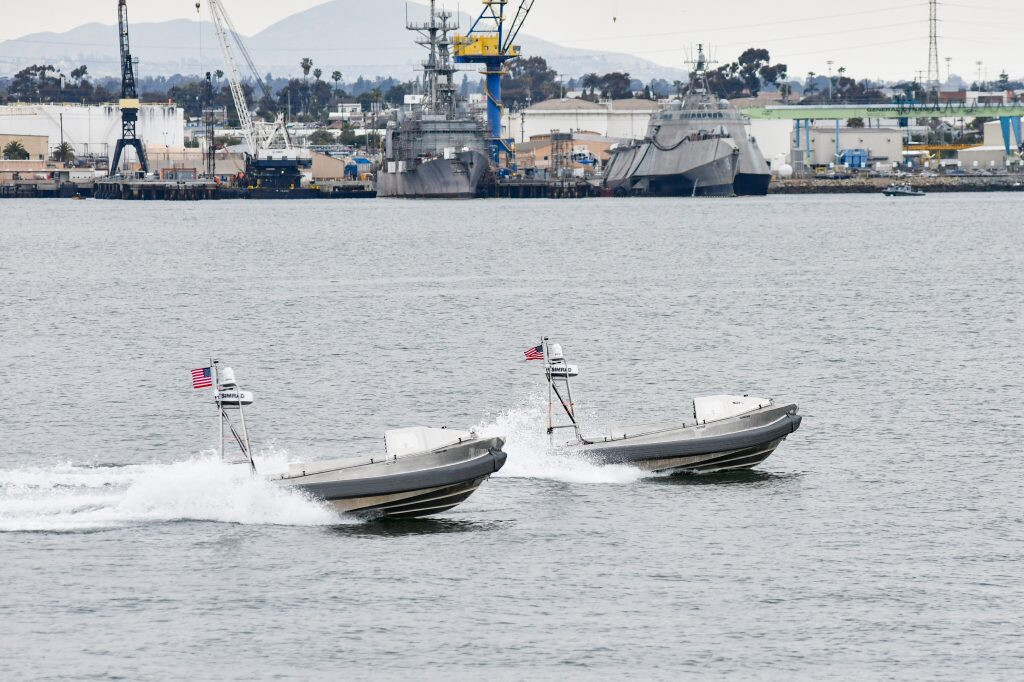
U.S. Special Forces have conducted Unmanned Surface Vessel (USV) training in Subic Bay, Philippines. This marks the introduction of cutting-edge equipment described by the U.S. Department of Defense as "high-performance unmanned surface vessels" to the Philippines, seen as a move to bolster defense cooperation between Washington and Manila against China's aggressive actions in the South China Sea.
Photos released by the U.S. Air Force show a U.S. Naval Special Warfare Combatant Craft Assault towing a MARTAC T-38 Devil Ray Unmanned Surface Vessel at Subic Naval Base. At the time, an Acero-class patrol boat, a BRP Gregorio del Pilar-class (PS-15) frigate, and the BRP Davao del Sur (LD 602) landing ship were docked at Berth 7.
U.S. Special Operations Forces have been conducting training in the Philippines since this spring, deploying special aircraft and high-speed vessels to the country. U.S. Secretary of Defense Pete Hegseth, during his March visit to the Philippines—the first to an Indo-Pacific partner nation—emphasized the deployment of U.S. forces across the Philippines, including Batanes, a strategic island chain near Taiwan, and the South China Sea.
Secretary Hegseth also highlighted the deployment of USVs and the Naval-Marine Expeditionary Ship Interdiction System (NMESIS) during Balikatan 2025, a bilateral exercise prioritizing activities in the South China Sea and Luzon Strait, with a focus on Philippine defense. Details of Secretary Hegseth's joint statement released in Manila specified that training on unmanned anti-ship launchers and vessels would "enhance the interoperability and operational readiness of U. U.S. and Philippine forces, enabling them to leverage cutting-edge military capabilities in the Indo-Pacific operating environment."
Unlike the high attention received by NMESIS during the exercise, information about the USV training was only publicly released in late May, weeks after the exercise concluded. The U.S. Air Force images are the sole public source depicting the U.S.-Philippine USV training.
It remains unclear whether the MARTAC drones used in the training are U.S. or Philippine-owned, as both nations have deployed unmanned systems for operations and testing. The Philippines has received four T-12 MANTAS and one T-38 Devil Ray from Washington as part of U.S. efforts to enhance the Philippines' Maritime Domain Awareness (MDA) capabilities. The Philippines has been working to strengthen these capabilities in response to territorial disputes with China. Although smaller than the T-38, the MANTAS can operate like a 'narco-submersible' by submerging most of the drone below the surface during operations through its awash deck feature. The Devil Ray can reach speeds of up to 80 knots and carry a payload of up to two tons. These vessels also utilize the Starlink satellite internet communication network for remote control and communication.
Naval News observed a Philippine Navy T-38 Devil Ray USV during a visit to Subic Naval Base in September 2024. Additionally, two smaller T-12 MANTAS were showcased during the recent 127th anniversary celebration of the Philippine Navy.
The Philippine Navy's Unmanned Surface Vessel Unit One operates these drones. Former Philippine Navy Flag Officer in Command, Toribio Adaci, stated in an interview with Naval News last year, "We need a USV unit for ISR (Intelligence, Surveillance, and Reconnaissance) purposes for Maritime Domain Awareness. This is essential to enhance our maritime domain awareness capabilities. Modern navies are evolving by utilizing unmanned systems to complement manned systems."
The U.S. Special Forces' USV training in the Philippines is a military exercise and concrete evidence of strategic cooperation between the U.S. and the Philippines to counter China's expanding influence in the South China Sea and enhance regional security. The introduction of state-of-the-art unmanned systems is expected to significantly improve the Philippine Navy's intelligence gathering and surveillance capabilities, ultimately contributing to the defense of Philippine territory and the protection of its maritime sovereignty. Such advanced military technology cooperation is anticipated to continue expanding, which will have a significant impact on the dynamics of the Indo-Pacific region.
[Copyright (c) Global Economic Times. All Rights Reserved.]






























